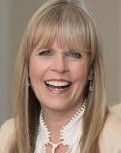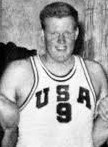The NBA Finals date back to 1947 (when they were known as the Basketball Association of America Finals) and the very 1st NCAA tourney was held in 1939. Olympic basketball competition is even older: it debuted as a demonstration event in 1904 and the men’s version became a medal sport in 1936, with the women finally getting their chance to go for the gold in 1976. The United States has dominated Olympic basketball competition from the start: the men have won 15 gold medals in the 18 tournaments they have participated in during the past 84 years, while the women have won 8 gold medals in the 10 tournaments in which they have competed during the past 44 years. Those of you who were looking forward to the 2020 Olympics opening ceremonies in Tokyo on July 24, 2020 will have to wait an extra 364 days, as the coronavirus caused a postponement until July 23, 2021. Due to the absence of college basketball since mid-March, HoopsHD’s Jon Teitel decided to fill the void by trying to interview as many prior Olympic players/coaches as possible so that you have something to read this summer while not watching the Summer Games. We continue our coverage by chatting with Cindy Heckelsberg about her father Clyde Lovellette winning an NCAA title AND an Olympic gold medal in 1952. Today marks the 68th anniversary of Clyde scoring 7 PTS vs. Hungary in Olympic round-robin pool play.
 (photo credit: heckelsberghomes.com)
(photo credit: heckelsberghomes.com)
Your father was born/raised in Indiana and originally enrolled at Indiana for college: what made him switch to Kansas? Coach Phog Allen! I do not know if he was actually enrolled at IU but he was certainly planning to go there. Phog worked on my grandmother quite a bit while my dad stayed at the other end of the house. Phog said that Kansas would be a better situation for my dad’s asthma and promised to get him to the Olympics. I went to the same high school as my dad and there was a life-size photo of him on the wall. There was also a photo of Terry Dischinger, who went to the same school as my dad and won an Olympic medal of his own in 1960. Terry’s father grew up down the street from us and was actually an assistant for my dad’s team!
What made Allen such a great coach, and what was the most important thing that your dad ever learned from him? My dad really revered him due to the discipline that he instilled in his players. He told me stories of throwing the ball away…followed by Phog making him take the ball home with him: he learned his lesson. Phog asked him to focus on his coordination and my dad thought that he was the greatest guy ever.
In the 1952 NCAA title game he had 33 PTS/17 REB in a win over St. John’s en route to being named tourney MOP: how was he able to play his best when it mattered the most, and what did it mean to him to win a title? He was a determined person who never did anything half-assed. He liked to win and always did his best, which he tried to instill that in us as well.
As a senior he led the nation in scoring with 28.4 PPG and was named national POY: what made him such a great scorer, and what did it mean to him to receive such an outstanding honor? Lots and lots of practice. He was very proud of all his achievements but was also very humble. He had the innate ability to know where things would fly. Even fooling around it seemed like he could pick up a ball and swish it from wherever he was standing. All of the accolades kind of roll into 1.
That April he was drafted 9th overall by Minneapolis but wanted to play in the Olympics so badly that he turned down an $80,000 contract to play AAU ball for the Phillips 66ers for 1 year, then that summer he was 1 of 7 Jayhawks (with Allen serving as assistant coach) who won a gold medal at the 1952 Olympics: what did it mean to him to win a gold medal? He would tell me about flying across the ocean to win a gold medal for his country, which was his greatest achievement. I remember him taking the medal out of the lockbox when I was a kid to show it to me. I did not realize that he turned down such a big contract. I remember seeing photos of my mom helping him pack for the Olympics. The other half of team USA was comprised of players from an AAU team in Peoria. I was with my dad in Lawrence when the school held a celebration for the 1952 team. I overheard a group of men talking about a Caterpillar strike and I asked my dad who they were: he said they were his Olympic teammates. The only reason that Phog was the assistant rather than the head coach is because Peoria beat KU in a scrimmage. My former babysitter brought me a catalog that the school sold to raise funds to help send the team to the Olympics: I still have it.
After Minneapolis beat Syracuse in Game 7 of the 1954 NBA Finals he became the 1st basketball player to ever win an NCAA title/Olympic gold medal/NBA title: how was he able to pull off such an amazing feat in the span of about 24 months? It was a huge deal but the times were different back then: pro basketball was new at the time.
After losing 2 NBA Finals with St. Louis in 1959/1961 he was traded to Boston in the summer of 1962 and won back-to-back NBA titles with Boston in 1963/1964: did it reach a point where the family just expected him to be busy every spring in the Finals?! It was hard for me as a little kid to understand when my dad got traded. We were in Missouri for a few years and 1 day I asked my dad to saddle my horse for me. I went to the kitchen and was tugging on my dad’s shirt sleeve and my parents told me to be quiet. I asked my mom who he was talking to and she said, “Red Auerbach!” My parents were talking back and forth about whether they wanted to sell the house and move to Boston: we went back to Terre Haute, IN, to live there every summer. He agreed to go to Boston for 1 year and commuted from St. Louis but it ended up becoming 2 years: my mom was not very happy living in the snow. He thought that he was a farmer and loved his tractor/cows. I remember hearing my dad talking about John Havlicek all the time and after an exhibition 1 day John came by our house to spend the night. I went downstairs, introduced myself to him (after waking him up), and asked him for an autograph. Many year later I went with my dad to the Hall of Fame and got stuck in a sea of tall men and could not find my dad. When I finally found him he was talking to Havlicek…who remembered me!
After retiring he served as a county sheriff and a basketball coach: how did he like working in law enforcement, and how did he like being a coach? He liked being sheriff and thought that he was John Wayne, literally! He closed down all of the whorehouses in Terre Haute after deciding to clean up the town by staging a raid: it was known as “Sin City USA” for a time because that is where the gangsters from Chicago would come to cool off. I remember my dad’s campaign signs: “Lovellette for Sheriff: A Big Man for a Big Job”. I did an awful lot of campaigning for him as a kid. He got called before the grand jury a couple of times. I do not believe that he ever graduated from KU: he took some criminal justice classes at Indiana State but actually got his degree from Eastern Illinois, which is right across the border from Terre Haute. He actually lived with me for a while after applying for some teacher positions but eventually got a job coaching in Wabash, IN. He worked with some kids in a group home and would sometimes lift them off the ground so they could see him eye to eye. He was always interested in lowering the juvenile delinquency rate and trying to put kids on the straight and narrow. We played cards with him toward the end of his life but still could not beat him: we were no match for him. I remember Coach Bill Self calling him once to talk to him.
He was inducted into the Naismith Basketball Hall of Fame in 1988 and the College Basketball Hall of Fame in 2012: where did those rank among the highlights of his career? He really liked the recognition and enjoyed going to Springfield: I would often get the call to join him on trips there. I went with him in 1988 and went another time with my son who drove all night from Norfolk, VA, to join us. He was just “dad” to me: I never realized how famous he was when I was a kid. 1 year I booked a flight for me and my oldest son to go to Lawrence and surprise my dad: he was there to receive an honor from Sigma Chi and was also introduced at halftime of a Jayhawk basketball game. I found out where he was staying and we ended up staying in the room right next to him at the Holiday Inn. We checked in, got settled in our room, and eventually heard my dad coming down the hallway. We popped out of our room to surprise him and he was so stunned. I got to meet a lot of his teammates and their wives and had a great conversation with all of them. When he walked onto the court I have never heard a roar like that. Both my dad and I were crying: that was my epiphany when I learned how famous he truly was. I brought my kids to the Hall of Fame once: 1 of them walked around with my dad and another just hung out and talked to Dean Smith the entire time!
He passed away in 2016: when people look back on his career, how do you think that he should be remembered the most? He was the 1st to win titles in the NCAA/NBA/Olympics: there are not too many others who have done that so his record stands on its own. He loved playing basketball and was amazed that people would pay him to do what he loved. He tried to pass along his expertise to others and liked to give back. He never stopped thinking and liked to keep busy so he did so many things after retiring from basketball: he did not want to just sit around in a rocking chair. He would watch every sport known to man on TV: I did not appreciate golf until watching it with my dad.

